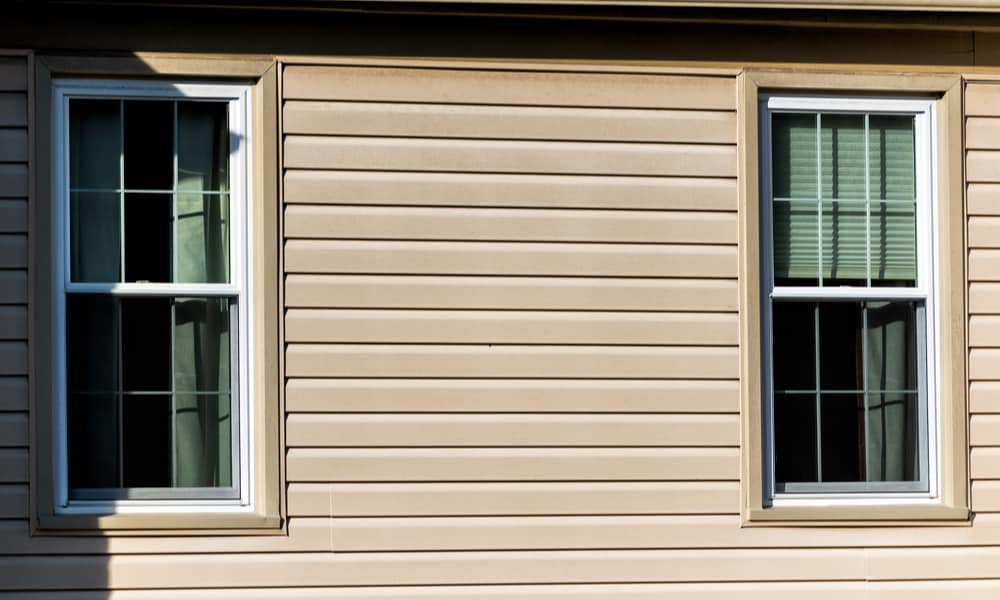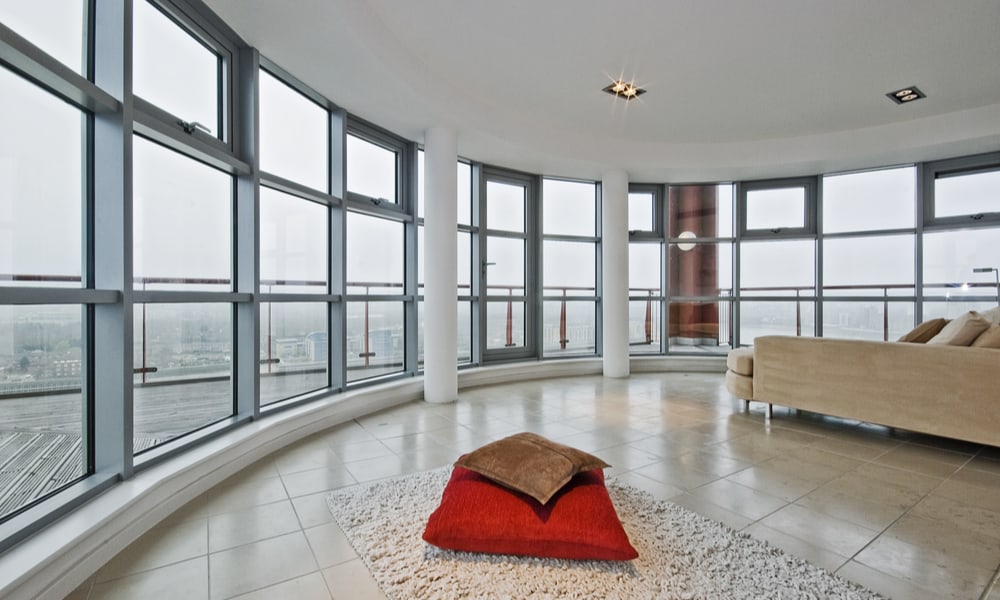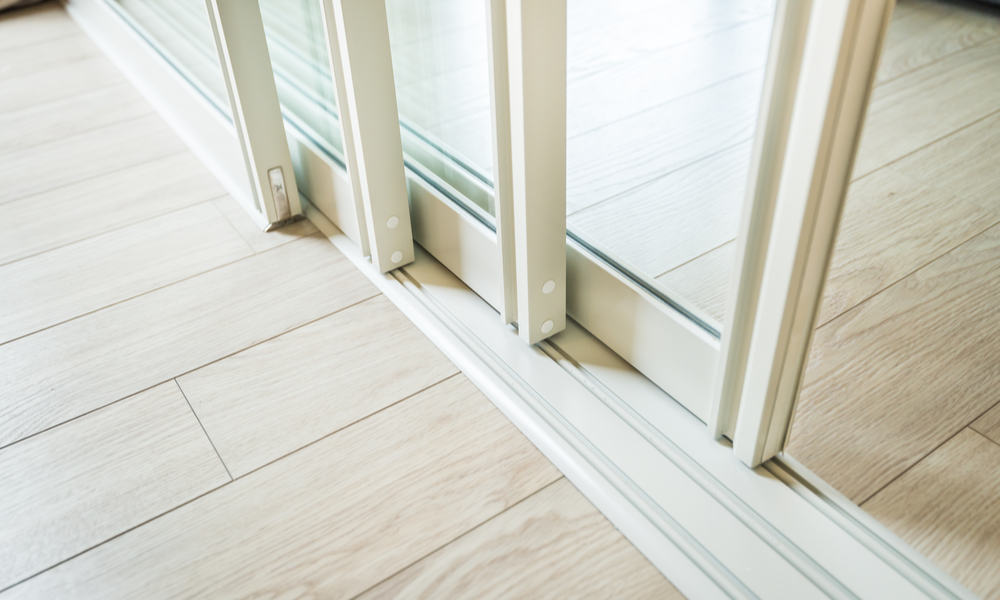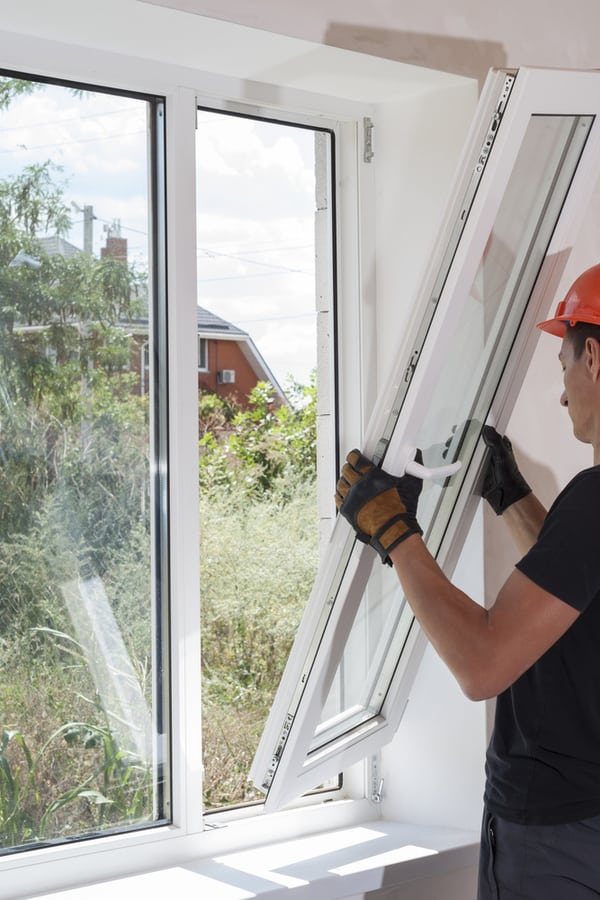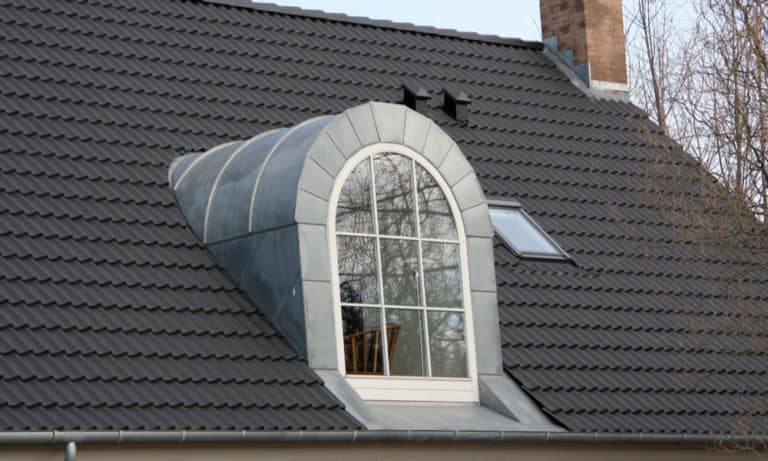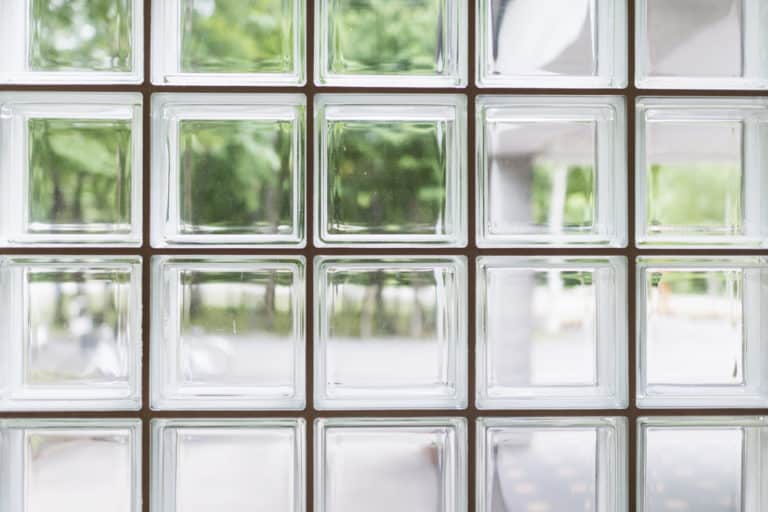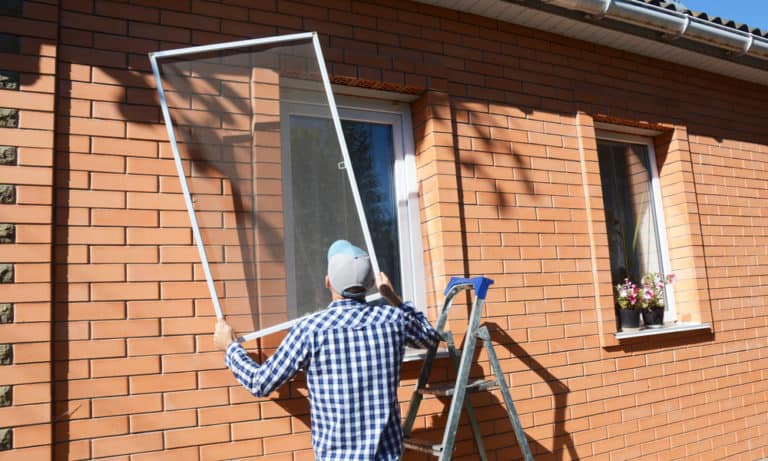Before we dig in, let’s be clear. As we argue over vinyl vs aluminum windows, we’re not talking about the window panes. Those are glass, or maybe clear plastic. But traditional window frames are wooden while replacement frames can be metallic or plastic, depending on your preference.
Vinyl and aluminum window frames may look the same to untrained eyes. Still, experts can tell them apart at a glance. And as you shop for refurbishment supplies, it helps to be clear on which one works for you. So let’s compare these two materials to see what suits you best.
Cost and Care
Vinyl and aluminum window frames are both affordable in comparison to wood, but vinyl is considerably cheaper than aluminum. They’re both naturally waterproof. Vinyl has a plastic base so it’s impermeable to moisture. And aluminum – unlike other metals – has a protective oxide. So even when it contacts moisture, aluminum develops a hard outer coating.
This layer offers an additional barrier against water damage. This effect is the opposite of iron oxide (rust) which is corrosive. Because these two framing materials aren’t harmed by water, they don’t need extra treatment or care. You can easily hose them down, or wipe them with soapy water, rinse, then buff them dry. But vinyl doesn’t need hand-drying like aluminum.
Style and Handling
Plastic is extremely versatile in terms of look and feel. You can paint it, mold it, or texture it according to your needs. This means your vinyl window frames can easily pass for wood. You can even mimic the grain and tone of the wood. Aluminum can be colored using powder-coated paint, but the effects aren’t as impressive as colored vinyl. Aluminum frames are thinner.
And while it’s easier to print patterns and apply texture on vinyl vs aluminum windows, aluminum is softer. This makes it easier to mold into shapes like arches and carvings. The downside is aluminum is easier to damage and dent because it’s such a pliable metal. It’s also a better conductor than vinyl, so it’s more susceptible to sun damage.
Tone and Trim
We’ve seen that vinyl mimics wood better than aluminum does. This means vinyl gives you a more ‘traditional window appearance’ while aluminum frames have a more contemporary ambiance. The softness of aluminum isn’t ideal for fasteners. So while the frames will be aluminum, any screws or rivets you use are more likely to be zinc or steel.
These materials can pit, fade, or corrode, damaging the vinyl below. And of course both vinyl and aluminum can withstand cracks and scratches. But flaws are more visible on aluminum than vinyl. As for color, vinyl versions have intrinsic coloring while aluminum powder coats stay on the surface. As a result, painted aluminum paint will chip and fade faster than painted vinyl.
Strength and Weather
Aluminum window frames are thinner and lighter than vinyl frames. But aluminum has more structural integrity than vinyl. So aluminum frames can hold up more weight than plastic ones. That’s why aluminum is preferred if you’re installing large windows or arched glass. Aluminum does better against strong winds too, so for tornado-prone areas, go with aluminum.
That said aluminum is a metal, so it’s a better conductor than plastic-based vinyl. This means your aluminum frames may need insulation for cold areas and may overheat in the summer. Vinyl frames are consistent in heat or cold, and they won’t warp or crack as surrounding temperatures fluctuate. Vinyl won’t hold up as well against tremors and quakes though.
Visual Maintenance
Window frames don’t need much scrubbing or sudsing. And we’ve established both materials demand less attention than weed. But we’ve also seen that vinyl is pre-colored before molding while aluminum has powder-coating baked (or painted) onto its surface. This means your aluminum frames may need occasional touch-ups while vinyl is forever, no repainting required.
Also, while aluminum doesn’t typically rust, it can still attract mold. And its fastening does get corroded through condensation. This means aluminum uses a special aluminum-friendly detergent while vinyl frames can be hosed down with plain water and any type of detergent. But vinyl sometimes ‘leaks air’. You’ll probably have to caulk its corners and edges once in a while.
Cranks and Moving Parts
Your window mechanism varies according to type. The windows could be transom hinges, sliding casements, or vertical awnings. If the frames are vinyl, there’s not much of an issue. But aluminum is a metal, so you’ll have to lubricate the frames more often. Also, because the metal fastenings aren’t always safe from moisture, you may have to manually dry aluminum frames.
Vinyl doesn’t have this problem. Any droplets – from rain, snow, or cleaning fluids – will drip right off. They might leave watermarks, but these are barely visible on vinyl. On metal, especially if it’s glossy, these droplets of water can be an eyesore. Brushing or powder-coating your aluminum window frames should solve this problem though.
Gaining and Losing Heat
We’ve mentioned aluminum is a better conductor than vinyl. Metal gets hotter and colder at higher speeds than vinyl. So as the aluminum frame expands and contracts, it may damage the glass inside it or the walls beside it. For the same reason, you may need fans (or consistently open windows during hot seasons. And you’ll need insulation or thick curtains when it’s cold.
Vinyl loses heat slowly, so it’s a better heat retainer during colder seasons and chilly nights. On hotter days, the vinyl frames will stay cold to the touch, no matter how harsh the sun is. But both vinyl and aluminum window frames can benefit from a coating of anti-UV protection. This extends the lifespan of both the window trim and the window glass itself.
Shape and Joinery
The debate on vinyl vs aluminum windows has some sticking points. Contractors claim vinyl cracks and warps more because it sheds heat slowly. Others say aluminum is more at risk from extreme temperature changes, but because both heating and cooling happen faster in aluminum, it’s less likely to lose its shape to sunlight and snow. It gets banged up more easily though.
On the other hand, aluminum frames can be molded out of a single piece of metal while vinyl has seams, corners, and edges. Aluminum frames have slimmer dimensions than vinyl. The shine and slimness echo modern design while thick wood-like vinyl seems more rustic. So aluminum is better for that minimalist industrial look while vinyl looks more vintage.
Energy and Installation
Conductivity doesn’t just influence your heating responses. Aluminum lets more heat in (and out) of the room. Meaning aluminum windows will use up more of your HVAC system, whether you’re cooling the room down on summer afternoons or heating it up on winter nights. So if you’re worried about power bills and energy-efficiency, vinyl is a safer option for your windows.
But as for installation, aluminum takes more time to install. It needs more skill and effort, though both vinyl and aluminum can be installed using YouTube for guidance. And while both window frames will need caulk, vinyl needs extra attention because air can easily slip through the window seams. When in doubt, have a professional do it – repairs DIY errors can be pricy!
Noise Cancellation
Conductivity seems to work the opposite when it comes to sound. Aluminum conducts heat more effectively. Turns out it absorbs sound better too. So aluminum frames are better at muting private voices and noisy traffic. But with both sets of frames, you can supplement your noise control through curtains, drapes, shutters, and carpets. They’re all good at muffling audio.
Also, this may seem obvious, but vinyl is plastic. So both its production process and its deterioration rates are bad for the environment. Aluminum is organic, so it’s biodegradable. This makes it a greener choice than vinyl. Especially when you consider that vinyl is less durable than aluminum. So it will be replaced more often and therefore generate more waste than aluminum.
Versatility in Application
Due to their varying levels of strength, load-bearing ability, and portability, aluminum is referred for commercial set-ups. It can hold more mass, so it’s ideal in skyscrapers and multistory construction. Vinyl is better for homes with one or two floors. Also, if you have extreme weather (summer, winter, tremors, winds) then aluminum is a better selection.
Vinyl would suffer more in these diverse conditions. It doesn’t hold up as well under earthquakes, and over time, it’s likely to lose shape when the weather gets too hot or cold. So it will start to look rugged and ratty while aluminum will – at worst – get a dull oxide coating. However, vinyl doesn’t ‘sweat’ or condense as much moisture, so it may be better for the cold.
Powder-coat or Plastic?
The choice between vinyl vs aluminum windows is a personal one, but here are some pointers:
- Both options are cheaper than wood, and they require less care than timber.
- Vinyl is artificial plastic while aluminum is a natural organic element.
- Vinyl holds color and texture better, and it shows fewer flaws.
- Aluminum is a better conductor but vinyl is a stronger insulator.
- Aluminum dents more easily but vinyl isn’t as resistant to hurricanes.
- Aluminum uses up more power from your HVAC system.
What material is framing your windows at the moment? Share a photo in the comments!

